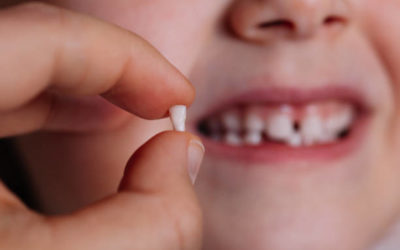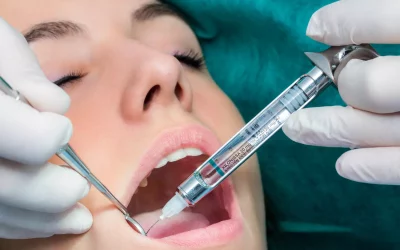
La rage de dent est une douleur intense provenant d’une infection ou d’une inflammation de la pulpe dentaire. Elle peut provoquer des maux de tête, des difficultés à manger ou parler et même perturber le sommeil.
Les causes de la rage de dent
Plusieurs facteurs peuvent être à l’origine d’une rage de dent. Certains sont directement liés à l’état de santé de nos dents alors que d’autres peuvent résulter de nos habitudes alimentaires ou comportementales.
Les caries dentaires
La cause principale de la rage de dent est la carie dentaire. Les bactéries présentes dans la bouche produisent des acides attaquant l’émail de la dent. Lorsque ces attaques ne sont pas stoppées par un traitement adéquat à temps, elles atteignent la dentine puis la pulpe dentaire, provoquant ainsi une inflammation et une douleur aiguë.
Les fractures dentaires
Une fracture dentaire est une fissure ou une cassure dans l’une de vos dents. Une chute, un coup ou encore la mastication de certains aliments durs peuvent causer cette situation. Les fractures dentaires exposent la pulpe de la dent aux bactéries et augmentent les risques d’infections et donc de douleurs dans la bouche.
Les problèmes de gencives
Les maladies des gencives, aussi appelées parodontite ou gingivite, sont caractérisées par une inflammation et une infection des tissus qui entourent les dents. Ces affections peuvent également provoquer des rages de dent.
Les symptômes de la rage de dent
Il est important de connaître et reconnaître les signes avant-coureurs et les symptômes d’une rage de dent, afin de pouvoir réagir rapidement en cas de douleur et ainsi éviter l’aggravation de la situation.
Douleur aiguë et intense
L’un des premiers signes d’une rage de dent est une douleur aiguë et intense dans la région touchée. Cette douleur peut être soudaine, pulsatile et augmenter en intensité lorsque vous mordez sur la dent ou consommez des aliments chauds, froids ou sucrés.
Sensibilité dentaire accrue
Une sensibilité accrue de la dent peut également être un indicateur de problème. Si vous ressentez une douleur lors du contact avec des aliments chauds, froids, acides ou bien sucrés, cela peut être le résultat d’un début de carie dentaire ou d’un autre problème affectant la santé de votre dent.
Enflure au niveau de la gencive
L’enflure de la gencive autour de la dent pourrait indiquer une inflammation ou une infection au niveau de la pulpe dentaire. Dans ce cas, il est recommandé de consulter un dentiste pour un diagnostic précis et une prise en charge appropriée.
Les solutions pour soulager la rage de dent
Face à une rage de dent, il existe des moyens temporaires pour l’apaiser en attendant une consultation chez le dentiste. Voici quelques astuces qui peuvent vous aider :
- Prendre des médicaments anti-inflammatoires non stéroïdiens (AINS) tels que l’ibuprofène, pour réduire temporairement la douleur et l’inflammation.
- Rincer votre bouche avec une solution saline tiède, plusieurs fois par jour, pour désinfecter la zone affectée et diminuer la pression exercée sur les dents.
- Appliquer une pâte d’eau et de sel de mer directement sur la gencive touchée peut également offrir un soulagement momentané.
- Éviter les aliments trop chauds ou froids et privilégiez une alimentation molle pour limiter la pression sur la dent douloureuse.
Ces méthodes sont seulement des palliatifs temporaires et ne remplacent en aucun cas une consultation chez un dentiste.
Le traitement par un professionnel
Il est primordial de consulter un dentiste dès l’apparition des premiers symptômes de rage de dent afin d’obtenir un traitement adapté et éviter l’aggravation du problème.
Traitement de la carie dentaire
En cas de carie dentaire, le dentiste procédera au retrait de la partie endommagée avant de placer un amalgame ou une résine composite pour restaurer la structure de la dent.
Le traitement du canal radiculaire
Lorsque l’infection atteint la pulpe dentaire, il est nécessaire de procéder à un traitement de canal radiculaire. Cette intervention consiste à ôter la pulpe infectée, désinfecter et obturer les canaux de la dent avec un matériau inerte.
Extraction dentaire
Dans certains cas, la dent est trop abîmée et ne peut être préservée. Le dentiste devra alors procéder à l’extraction dentaire et des solutions de remplacement seront proposées (implant, bridge…).
En résumé, la rage de dent est un problème courant pouvant avoir des conséquences graves sur notre santé dentaire si elle n’est pas traitée rapidement. Il est essentiel d’adopter une bonne hygiène bucco-dentaire et de consulter régulièrement un dentiste afin d’éviter ce type de complications.





